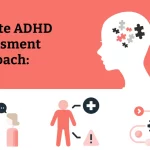
In the life of every woman, there comes a moment that marks the end of her menstrual cycle and is marked as menopause.
It is the central event of a multi-year transitional period between maturity and the beginning of old age – the climacteric (climax), during which the ovarian function gradually shuts down and women’s reproductive capacity ceases. However, you can contact a private menopause clinic if you are afraid for your health.
What is menopause and how long does it last?
Menopause is a natural biological process – a normal part of ageing that marks the end of your fertile, reproductive years. It is diagnosed after 12 consecutive months have passed since the last menstruation.
Changes in the levels of estrogen and progesterone, two female hormones produced in the ovaries, lead to a range of symptoms such as hot flashes and vaginal dryness.
In addition to these physical symptoms, there are also emotional symptoms of menopause, which can disrupt your sleep, reduce energy, or affect your emotional health.
However, people who have had their ovaries surgically removed go through “sudden” surgical menopause.
Menopause usually occurs in the late 40s to early 50s, but the average age at which menopause occurs is 51 years of age. It occurs when you stop producing the hormones that trigger your menstrual cycle and go without a period for 12 months straight. The time before menopause can last eight to 10 years and is referred to as perimenopause. The time after menopause (postmenopause) will last for the rest of your life.
Phases of menopause – perimenopause and postmenopause
Climacterium comes from the Greek word climacter, which means change/turning point and includes the entire period of gradual cessation of ovarian function, and can be divided into three phases: perimenopause, menopause and postmenopause.
Natural menopause is the permanent cessation of menstruation that is not induced by any medical treatment.
For people going through natural menopause, it includes the following stages:
Perimenopause or “menopause transition” is the time leading up to menopause. Perimenopause can begin eight to 10 years before menopause when the ovaries gradually produce less estrogen and menstrual cycles become irregular and irregular. It usually starts when you are in your 40s. Perimenopause lasts until menopause.
During the last one to two years of perimenopause, the decline in estrogen accelerates. At this stage, you may start to experience the side effects of menopause, such as hot flashes or vaginal dryness. As you still have menstrual cycles during this period, you may remain in another state.
Menopause: Menopause is when you no longer have periods. At this stage, your ovaries have stopped releasing eggs and making most of their estrogen. Menopause is diagnosed when you have not had a period for 12 consecutive months.
Postmenopause (the rest of your life after going through menopause). This is the name given to the time after you have been without a period for more than 12 consecutive months. There is no age at which you are automatically postmenopausal. When you miss your period for more than a year, you are postmenopausal regardless of your age.
Once you enter postmenopause, you are in this stage for the rest of your life. Your hormone levels will remain low and you will no longer have monthly periods. At this stage of life, your reproductive years are behind you and you are no longer ovulating (your ovaries have stopped releasing eggs), so you cannot get pregnant.
During this phase, menopausal symptoms, such as hot flashes, become milder or disappear altogether. However, some people continue to experience menopausal symptoms for a decade or more after the menopausal transition. As a result of lower estrogen levels, those who are postmenopausal are at increased risk of several health conditions, such as osteoporosis and heart disease. Medicines or lifestyle changes can reduce the risk of these conditions.
What is premature menopause?
As we previously stated, when menopause occurs between the ages of 45 and 55, it is considered “natural” and a normal part of ageing. However, some people can experience menopause early, either as a result of surgery (such as having the ovaries removed) or damage to the ovaries (such as chemotherapy or radiation). Menopause that occurs before the age of 45 is called early menopause. Menopause that occurs at age 40 or earlier is considered premature menopause. When there are no medical or surgical causes for premature menopause, it is called primary ovarian insufficiency.
Hormonal changes that occur during menopause
The traditional changes we think of as “menopause” occur when your ovaries no longer produce sufficient levels of hormones due to loss of ovarian follicular activity. Ovaries are reproductive glands that store eggs and release them into the fallopian tubes. They also produce the female hormones estrogen and progesterone. Together, estrogen and progesterone control menstruation. Estrogen also affects how your body uses calcium and maintains blood cholesterol levels.
Androgens – often referred to as “male hormones”, are also produced in the female body as testosterone and dehydroepiandrosterone (DHEA), but in much smaller quantities than in men. Insufficient androgen levels at any age are thought to contribute to fatigue, mood swings and reduced sex drive. In menopause, there are no dramatic changes in androgen levels.
Ageing appears to affect androgen production more than menopause itself, although women who have had their ovaries removed (surgical menopause) sometimes experience a sharper drop in testosterone levels. Interestingly, testosterone increases again in older women. Testosterone concentrations have been shown to decline by about 50% during reproductive life, between the ages of 20 and 40. They change a little during the transition period, and after menopause, they can even increase. As menopause approaches, your ovaries no longer release eggs into the fallopian tubes and you will have your last menstrual cycle.
Why is important menopause treatment?
Private menopause treatment can be important for several reasons. Menopause is a natural biological process that marks the end of a woman’s reproductive years, and it can cause a range of symptoms that can significantly impact a woman’s quality of life. These symptoms can include hot flashes, night sweats, vaginal dryness, mood changes, and sleep disturbances, among others. Important to have regular checks with your private menopause clinic.
While some women may be able to manage their symptoms with lifestyle changes or over-the-counter remedies, others may require more comprehensive treatment. Private menopause treatment can provide women with access to a range of options, including hormone replacement therapy (HRT), non-hormonal medications, and complementary therapies like acupuncture or herbal remedies.
For some women, private menopause treatment may be particularly important if they are experiencing severe or persistent symptoms that are affecting their daily lives. It may also be beneficial for women who prefer to discuss their symptoms and treatment options in a more private and personalized setting, rather than in a larger clinic or hospital environment.






